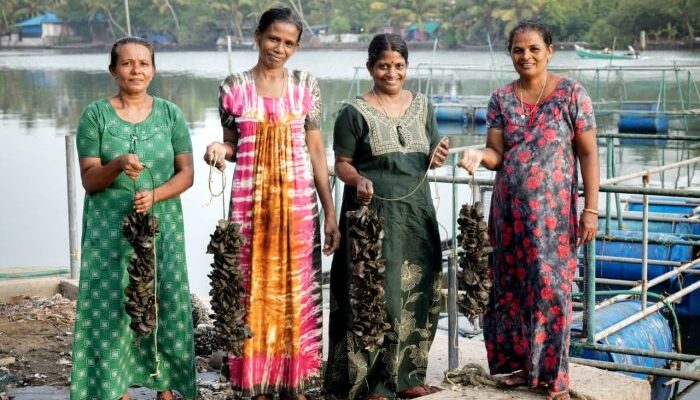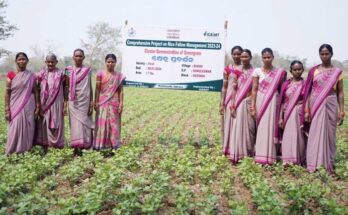Kochi: Women farmers in Moothakunnam and Kottappuram have achieved a remarkable harvest of green mussels under the guidance of the ICAR-Central Marine Fisheries Research Institute (CMFRI). The Kudumbashree units in Kerala produced a total of 2.5 tonnes, with 1.5 tonnes from Moothakunnam and 1 tonne from Kottappuram.
Initiated in December 2023, the farming project was supervised by CMFRI scientists. Following the harvest, the mussels underwent depuration, a scientific process that removes contaminants from the mussels’ gills and gut by providing them with purified seawater, ensuring they are safe for consumption.
You may also like to read: Scientists urge to explore the potential of deep-sea mesopelagic fishes within Indian EEZ
The depurated mussel meat from these farms is now available for sale at the CMFRI. It can be purchased at the Agriculture Technology Information Centre (ATIC) from 10 AM to 4 PM on all working days, priced at Rs. 250 for a 250-gram packet, until stock lasts.
Economic Value of Green Mussels in Kerala
Green mussels (Perna viridis), locally known as ‘Kallumakai’ in Kerala, play a significant role in the state’s economy, particularly in the coastal regions. The economic value of green mussels in Kerala can be analysed through various dimensions such as production, employment, exports, and contribution to local livelihoods.
Kerala has a favourable coastal environment for green mussel farming, particularly in the backwaters and estuaries. Key regions for mussel farming include the districts of Kozhikode, Malappuram, Thrissur, and Kannur. The state uses both traditional and scientific methods for mussel cultivation, leading to significant production levels.
Mussel farming provides employment to a large number of people, including fishermen, women, and youth in coastal communities. It involves various activities such as seed collection, farming, harvesting, and marketing, creating a range of job opportunities.
You may also like to read – Rice Fallow Cultivation: Women farmers in Odisha lead the change with the second crop
Mussel farmers earn direct income from the sale of mussels. The demand for green mussels is high both in domestic and international markets. Green mussels from Kerala are exported to various countries, contributing to foreign exchange earnings. The quality and taste of Kerala’s green mussels make them highly sought after in international markets, particularly in the Middle East, Southeast Asia, and Europe.
Mussels are a rich source of protein, omega-3 fatty acids, and other nutrients, making them an important part of the local diet. Environmentally, mussel farming helps in water filtration and maintaining marine biodiversity, which indirectly benefits the fishing industry.
Challenges and Opportunities
The industry faces challenges such as climate change, pollution, and regulatory hurdles. Disease outbreaks and fluctuations in seed availability also pose significant risks. However, there is potential for expanding mussel farming through improved technology and sustainable practices. Government initiatives and subsidies can help in scaling up production and enhancing profitability.
The government of Kerala, along with various marine research institutes, provides support through subsidies, training, and technical assistance to promote mussel farming. This has led to increased adoption of mussel farming practices among coastal communities.
Photo caption: Women farmers from Moothakunnam with the harvested mussels.




